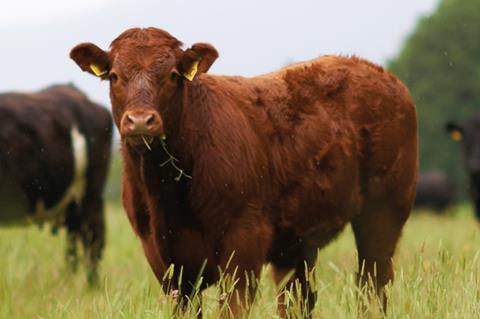The Association of Independent Meat Suppliers (AIMS) has expressed “serious concern” over the continuing spread of Bluetongue across Great Britain and the “apparent lack of strategic coherence” in the national response.

Dr Jason Aldiss BEM, executive director of AIMS, commented: “The recent confirmation of multiple cases of Bluetongue, including four in Wales and two of the new serotype BTV-8, represents a material escalation in both scope and complexity. This development was not unforeseen. The seasonal rise in cases, driven by midge activity over the summer months, follows a well-established epidemiological pattern. What is now required is not reaction but resolve.”
The AIMS Bluetongue Viewpoint has detailed that cases in Wales had been expected since disease was confirmed in Hereford earlier in 2025. AIMS had cautioned that the restricted zone along the England-Wales border was inadequate to prevent spread into Wales, and called the current response in Wales “perplexing”. Aldiss continued: “Regrettably, those warnings appear to have been borne out. The decision to declare only a narrow temporary control zone around a single case, when there is evidence of local transmission, raises legitimate questions about proportionality and preparedness.”

Aldiss also noted that the policy of slaughtering infected animals “addresses neither the infected midge population nor the longer-term epidemiological risk”, and warned that such measures may discourage farmers from reporting suspected cases.
He emphasised the need for “calm, evidence-based communication with farmers and veterinarians” and condemned the spread of misinformation surrounding vaccination.
Aldiss said: “The safety and efficacy of vaccination are well-established. What has been lacking is consistent leadership and a unified message. The illusion that Wales could somehow remain immune to infection has left many producers dangerously unprepared.”
The emergence of BTV-8 – against which the current BTV-3 vaccine offers no protection – is of particular concern, AIMS found.
Aldiss continued: “We must now anticipate the possible introduction of multiple serotypes, including BTV-1 and BTV-4, already circulating in northern Europe. This scenario risks the creation of overlapping restriction zones, disrupting animal movements and placing significant strain on rural businesses.”
Aldiss called for “immediate collaboration” between Government, industry and the veterinary profession to develop a coherent control and vaccination strategy. He noted: “Other jurisdictions have demonstrated the benefits of decisive, coordinated action. Jersey’s compulsory vaccination scheme, and the partially funded programmes in several northern European countries, have all proven effective in mitigating the economic and animal health consequences of Bluetongue.”
He concluded: “We are not powerless in the face of this disease. What is required is foresight, coordination, and courage. Farmers deserve a response that is measured, proportionate and rooted in science – not expediency. AIMS stands ready to work with all parties to ensure that the United Kingdom adopts a rational and resilient approach to Bluetongue control.”















